Obituary: Andrea Levy
- Published
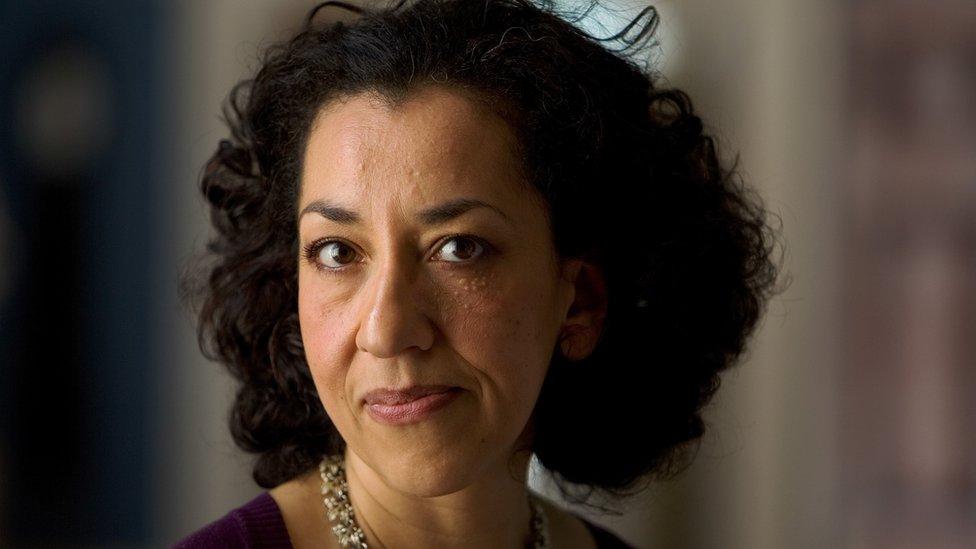
Andrea Levy, who has died of cancer at the age of 62, told the stories of the Windrush generation with humour and compassion.
As Britain struggled to revive its post-war economy, invitations were extended to citizens of the Empire. "Come and make your lives in the Mother Country," the advertisements said.
Levy's books chart the experiences - and disappointments - of the first Caribbean immigrants and their children.
Her Jamaican father, Winston, was aboard the Empire Windrush, the first ship to dock at Tilbury in 1948.
The open arms which the 492 men expected were not forthcoming. Racism and rejection, small rooms and chilly receptions awaited instead.
Her writing could have been angry and preachy, but it wasn't. It was witty, humane and often moving, and full of richly drawn characters.
She brought ignored and forgotten stories back to public consciousness. And she drew on her own mixed-race, working class experience to enrich her themes of family and displacement.
"Identity!" she wrote. "Sometimes it makes my head hurt - sometimes my heart. So what am I? Where do I fit in to Britain?"
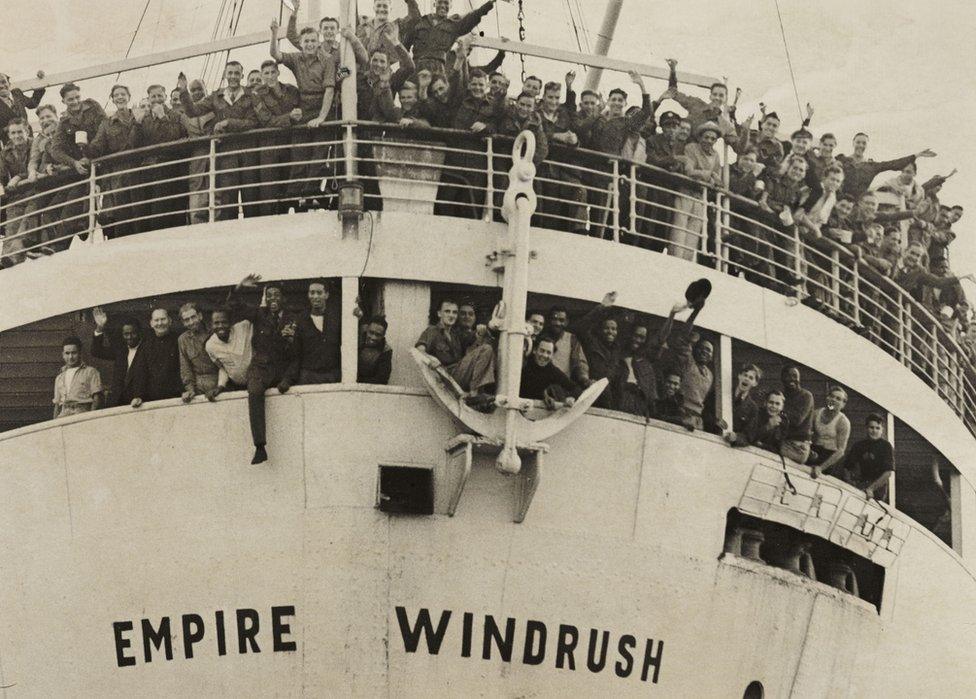
Levy's father was aboard the Empire Windrush when it docked at Tilbury in 1948
Andrea Levy was born in London on 7 March 1956. She grew up in a council flat in north London, in the shadow of the Arsenal stadium.
Both parents, Winston and Amy, were Jamaican-born of mixed descent. With both black, Scottish and Jewish grandparents, Levy knew she wasn't white but didn't think of herself as black either.
Her light-skinned parents wanted to integrate and rejected a black identity. Andrea simply saw herself as "a bit dark" and knew "she needed to be careful".
Childhood was spent, she said, eating sweets and watching soap operas. She passed the 11-plus and, in 1968, attended the prestigious Highbury Hill Grammar School.
The girls were told they were part of an elite, although - when it came to their careers - teaching, typing and nursing were the only options presented.
Levy hardly read a book at school. With six people in a small flat with one heated room, she later said, nobody was going to do Middlemarch.
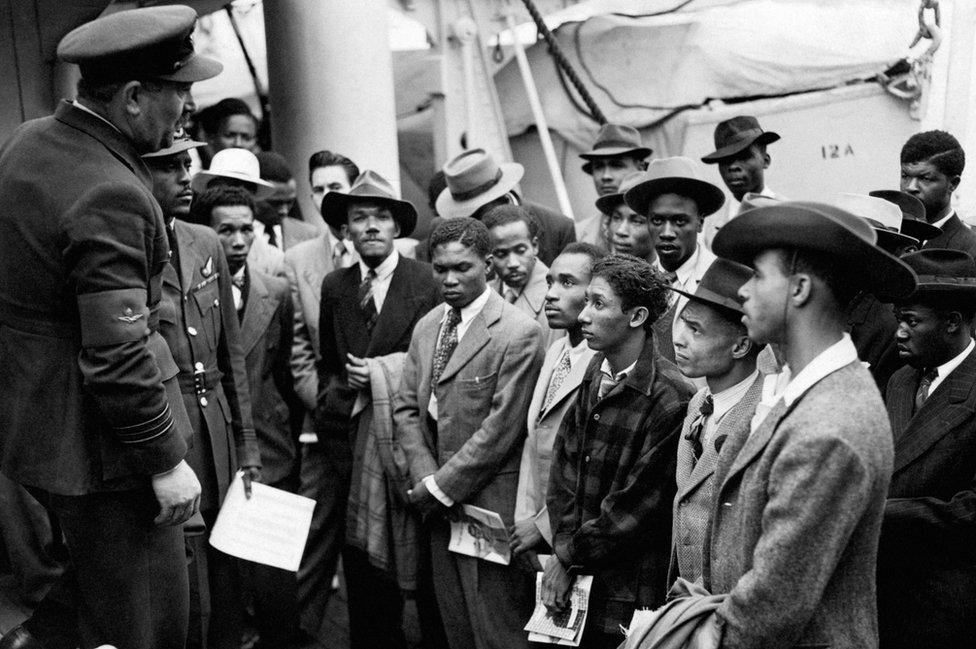
The men who arrived on the Empire Windrush hoped for a warm reception in the "Mother Country"
Instead she studied textile design and became a costume assistant - finding work at the Royal Opera House and the BBC.
In 1982 she worked on BBC Two drama Unity, about the Mitford sister who became Hitler's friend. To her astonishment, managers said the actors would not want to be dressed by someone of colour.
It was the first time, she said, that she thought of herself as black.
Finding her voice
Realising there were things to say about her Caribbean heritage and experience of integration, she joined a creative writing class.
She found a voice she never knew she had - although her mother was puzzled. "Why would anyone want to read about something you've just made up?" she said.
Her first efforts were autobiographical. In 1994 she published Every Light In The House Burnin', the story of a child of Jamaican parents in the north London of the 1960s.
It also tackled the slow death, by cancer, of the character's father. That too, was drawn straight from Levy's life - and a subject which she could never face again.
Never Far From Nowhere (1996) was the story of two sisters, again of Jamaican parents, negotiating the maze of their cultural heritage. It was long-listed for the Orange Prize for Fiction.
In the late 1990s Levy made a pivotal trip to Jamaica. She wanted to research her past and find the extended family her parents - ashamed of their Caribbean past - had never mentioned.
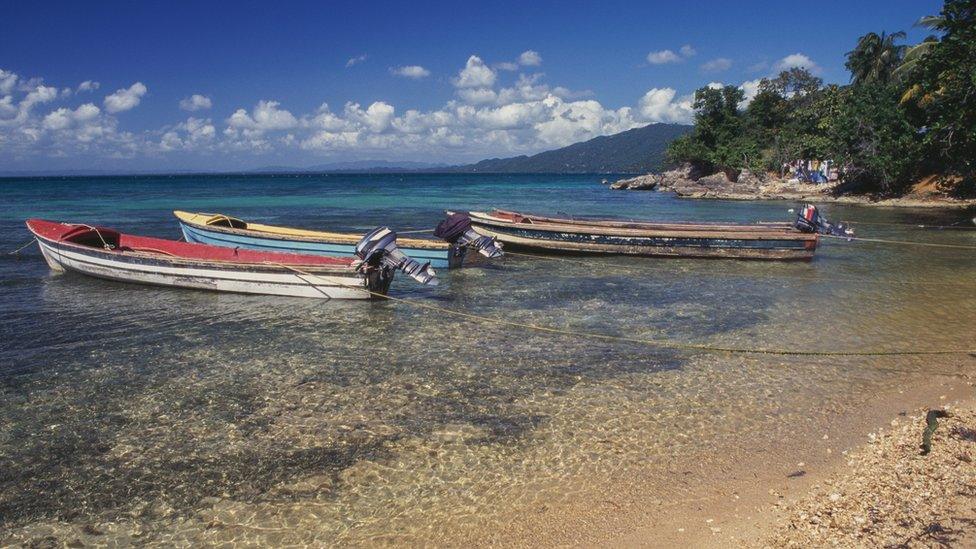
Levy made her first visit to Jamaica in 1990 and met many relatives she had not been aware of
The book which resulted, Fruit of the Lemon (1999), tells the story of Faith. She is a textiles graduate of Jamaican descent whose mother, like Andrea's own, came to England on a banana boat.
Faith has a message to the bullies and racists she encounters. She proudly proclaims an identity neither English nor Jamaican. "I am the bastard child of Empire," she says, "and I will have my day."
Small Island
Levy's first novels had critical success but hardly sold. Publishers remained convinced, she said, that black writers couldn't sell a universal story. Her next book changed all that.
She would often joke with her white husband, Bill Mayblin, about how their parents might have got on if they'd met in the 1940s. In Small Island (2004) she brings to life exactly that scenario.
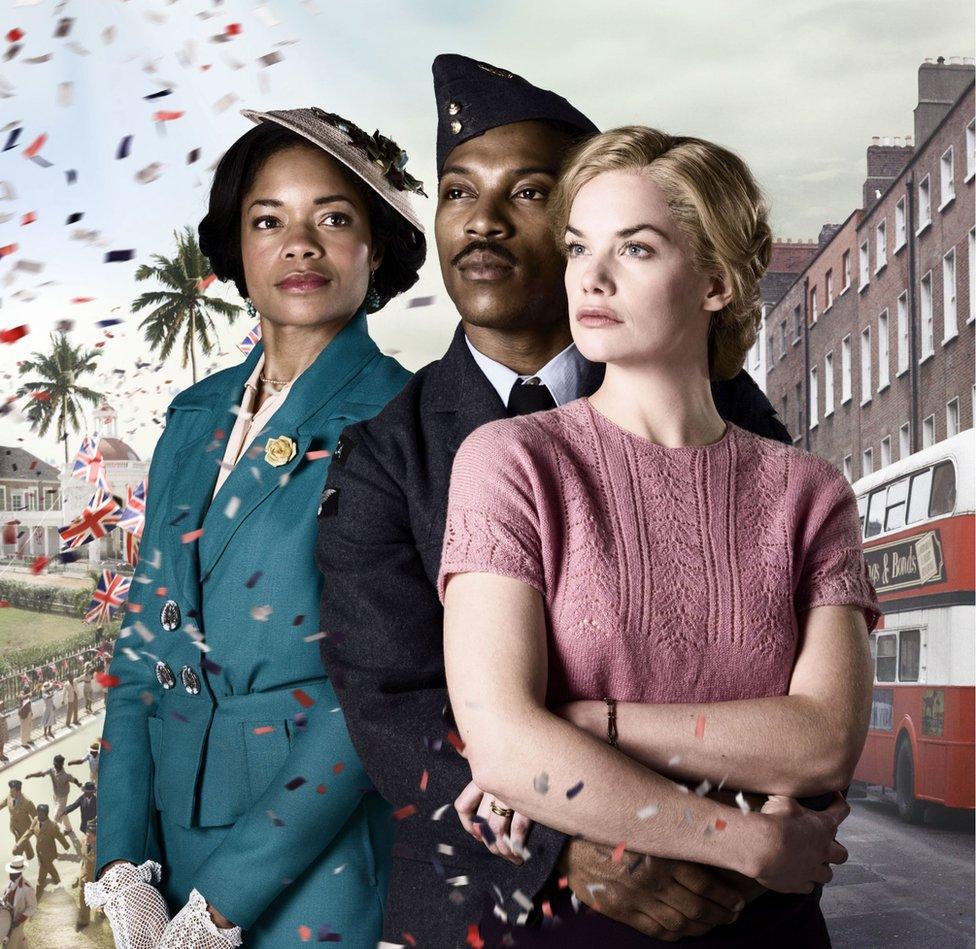
Naomie Harris, Ashley Walters and Ruth Wilson starred in a BBC adaptation of Small Island
It is the story of two couples - one white, one black - who become bound up in each others' lives. It is told from the perspective of each character in turn, addressing history from multiple perspectives.
In it she paints on a broader canvas than before, skilfully charting the sense of disappointment felt by her parents' generation. Britain and Jamaica, they found, were both small islands - but they did not easily mix.
Many stories from her parents' lives went straight into the book, including her father's failure to meet his wife off the banana boat and her mother's humiliating rejection by the teaching profession.
The families are separated not just by colour and culture, but also by language. Levy spent hours recording her mother and mother-in-law on tape to get the voices right.
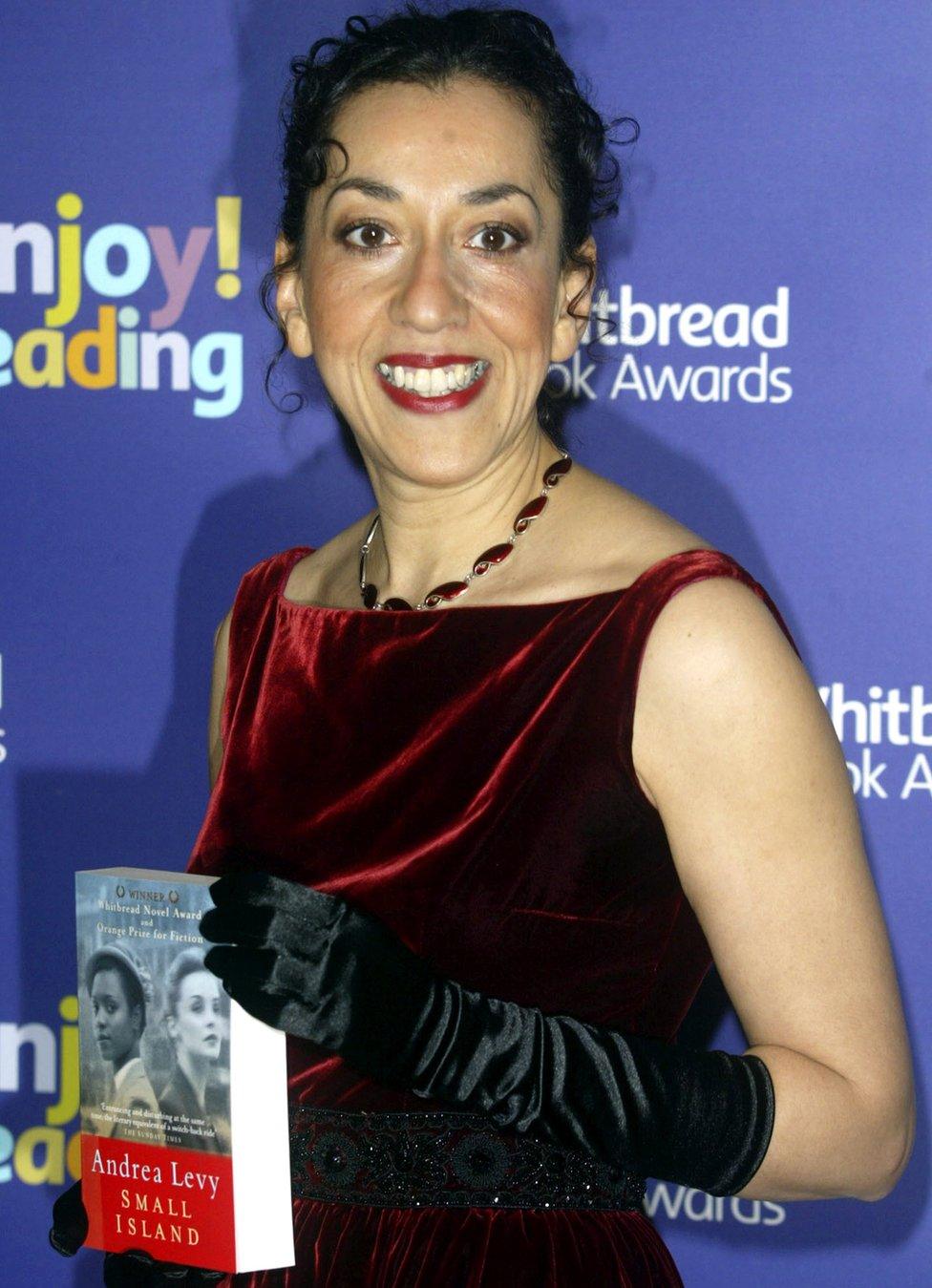
Small Island won the Whitbread Book of the Year prize in 2004
Small Island became Levy's break-out novel. She won the Orange Prize and, later, the Whitbread Book of the Year.
The book went on to sell more than a million copies and was adapted for BBC television in 2009. The National Theatre in London will present its own version of the novel later this year.
The prizes were for great writing. But they were also an important public recognition of the men and women who encountered Enoch Powell.
"I would like to thank those people in Britain," she said, "who work hard to make sure that the rivers in this country never run with blood, only water."
The Long Song
Her final novel, The Long Song (2010), delved even deeper into forgotten history. It tells the story of July, a plantation worker who lived through the abolition of slavery in the Jamaica of the 1830s.
Levy was determined that it should not be a "misery-fest", but she did want to expose a hidden chapter of colonial history. For every slave who went to America, she said, another 12 ended up in the Caribbean.
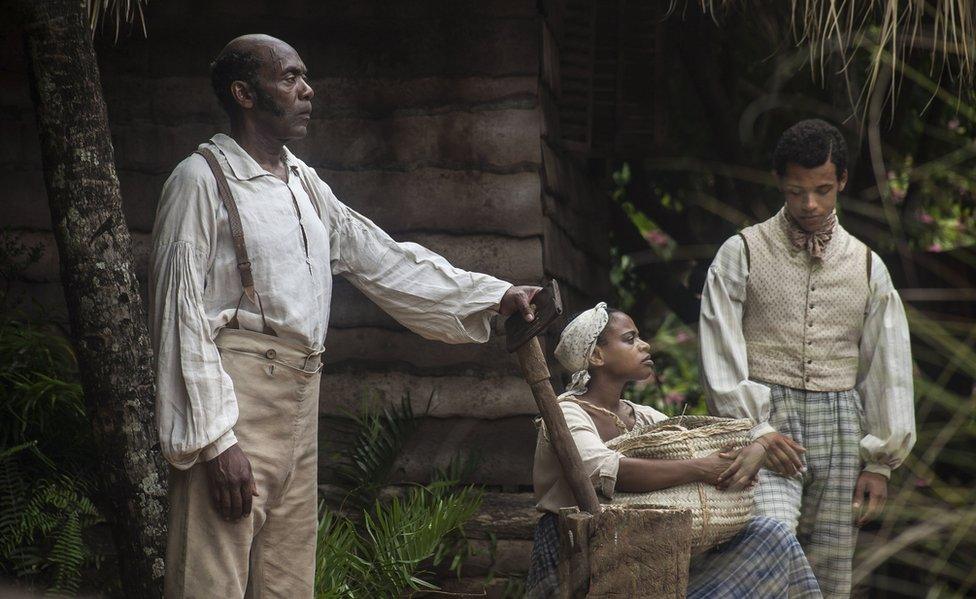
Sir Lenny Henry, Ayesha Antoine and Jordan Bolger in the BBC's adaptation of The Long Song
July falls in love with her plantation master and bears him a child. Later, Levy discovered - through her niece's research on Facebook - that it was a story shared by her great-great grandmother Fanny.
The Washington Post said the work "reminds us that she is one of the best historical novelists of her generation." It was shortlisted for the Man Booker prize and, in 2018, adapted by the BBC.
Sir Lenny Henry, who starred as the head slave Godfrey in the production, paid tribute to her influence in a recent BBC Imagine documentary. She was, he said, an author who blazed a trail and inspired others to find their own voice.
Levy was diagnosed with breast cancer 15 years ago. She was treated at the Royal Marsden Hospital but was eventually told it was incurable.
She will be remembered as a writer who tackled important social issues, and did so by creating warm, living, complex characters. It was this which brought her critical acclaim and a wide audience.
She was immensely readable, Through the stories of a previously voiceless generation, Andrea Levy did not try to change minds - but she did succeed in opening them.

Follow us on Facebook, external, on Twitter @BBCNewsEnts, external, or on Instagram at bbcnewsents, external. If you have a story suggestion email entertainment.news@bbc.co.uk, external.